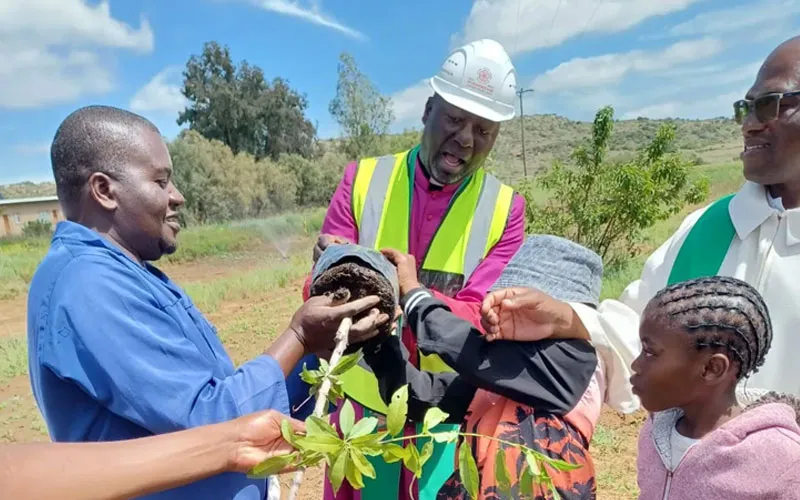From Abraham who migrated several times until he arrived in present-day Israel, and Jesus who was a refugee in present-day Egypt, Christianity has been built on movement and migration, he says.
“Ours is a Church on the move. It is a Church of migrants. What Pope Francis is teaching us is to see the countless opportunities in opening our doors to the migrants and refugees,” the 55-year-old Catholic Bishop who has been at the helm of Aliwal Diocese since his Episcopal Ordination in February 2020 told ACI Africa.
Bishop Kizito continued, “America came up as a result of migrants and refugees. Jews always left their gates open for visitors who brought in different gifts and talents. In South Africa, the migrants and refugees have taught the local people skills in business, and education, and we have others in the Church teaching catechism.”
The biggest plus for refugees and migrants in Pope Francis’s 10 years as leader of the Catholic Church has been amplifying the voice of the most vulnerable members of this group, especially children, he further said.
“Pope Francis understands that among migrants and refugees, children are some of the most vulnerable; they have no voice; all they do is follow their parents without objecting,” Bishop Kizito told ACI Africa March 9.
(Story continues below)
He said that Pope Francis’ 11 April 2019 dramatic gesture when he knelt and kissed the feet of worrying South Sudanese political leaders has been an invitation for Africa’s political leaders to end wars on the continent and to create safe spaces for the people so that they will not have to leave.
According to the Liaison Bishop for the Migrants and Refugees department of SACBC, wars resulting from bad politics and economic challenges are responsible for most migrations happening in Africa.
Meanwhile, Bishop Kizito has called on countries hosting refugees and migrants in Africa to stop “exploiting” this vulnerable group.
“These people need food, shelter, and work. Let's stop exploiting them because they are vulnerable. Let's stop using them for cheap labor. I appeal to the Church, specifically, to desist from misusing migrants and refugees because this exploitation will go down history and will come back to haunt us. We all know how the Church has been accused of enslavement in the past. Let’s treat these people with dignity,” he says.
Migrants and refugees can be empowered with opportunities to work for themselves and pay for their needs, instead of enclosing them in camps where they are continually given relief food, the Bishop of Aliwal North says.
“These refugees are not stupid people. For someone to brave dangers along the way from DRC to Kenya or to South Africa, they must be courageous and resourceful. Many migrants and refugees have employable skills. Some have scaled academic heights and all they need are opportunities to make a living and to grow themselves and their families,” Bishop Kizito says.
The Ugandan-born Bishop adds, “I love South Africa because there are no camps for refugees here. The moment they arrive, they are integrated into the community and shown what to do to make a living for themselves.”
Bishop Kizito has urged the Church to use her structures, including the Small Christian Communities (SCCs), Caritas, and other platforms to increase awareness about the plight of migrants and refugees.
Agnes Aineah is a Kenyan journalist with a background in digital and newspaper reporting. She holds a Master of Arts in Digital Journalism from the Aga Khan University, Graduate School of Media and Communications and a Bachelor's Degree in Linguistics, Media and Communications from Kenya's Moi University. Agnes currently serves as a journalist for ACI Africa.








